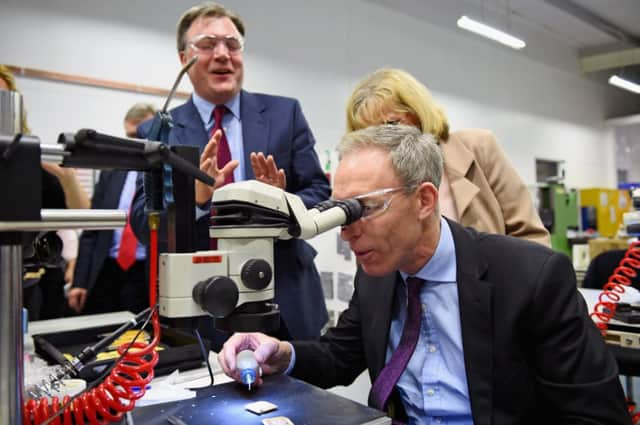Factory output tipped to recover after decline


The 0.5 per cent decline means the industry is still 4.8 per cent smaller than its pre-crisis level at the start of 2008 and will add to concerns about the need to rebalance economic growth.
Although Chris Williamson, chief economist at research outfit Markit, said yesterday’s official data did not bode well for GDP in the first quarter, “growth looks poised to revive, based on both survey evidence and indicators of financial conditions facing households and businesses”.
Advertisement
Hide AdAdvertisement
Hide AdHe added: “The underlying trend in manufacturing remains positive and looks set to gather strength in coming months.”
Manufacturing grew last year for the first time since 2011 when it expanded by 2.9 per cent, although monthly growth has now been slowing since November, official figures from the Office for National Statistics (ONS) show.
The latest data came a week ahead of the Budget and coincided with a warning from the British Chambers of Commerce (BCC) that the UK is still far from enjoying a sustainable economic recovery driven by business investment and exports.
The BCC has upgraded its GDP growth forecast from 2.6 per cent to 2.7 per cent for this year, but chief economist David Kern said: “The recent sharp rises in the pound against the euro mean that manufacturing exporters are now facing greater obstacles to maintain their exports to the eurozone.”
January’s figures show that computer, electronic and optical products led the slowdown in the manufacturing sector as this area declined compared to a period where high-value contracts were awarded in December.
Machinery and equipment makers also had a poor January, according to the figures, but overall industrial production fell by a narrower 0.1 per cent, amid a rebound in North Sea oil and gas extraction.
Howard Archer, chief UK and European economist at IHS Global Insight, said: “On the domestic demand front, elevated consumer confidence, markedly improving consumer purchasing power and rising employment should underpin demand for consumer durable goods. Any pick-up in housing market activity would also be good news for manufacturers. However, the current strength of the pound will be of some concern to UK manufacturing exporters, particularly against the euro.”
Sterling is trading at the highest levels in more than seven years against the euro, pushing up the price of British goods in the eurozone.
Advertisement
Hide AdAdvertisement
Hide AdThe single currency has been driven lower by the European Central Bank’s plans to start buying government bonds.
SUBSCRIBE TO THE SCOTSMAN’S BUSINESS BRIEFING